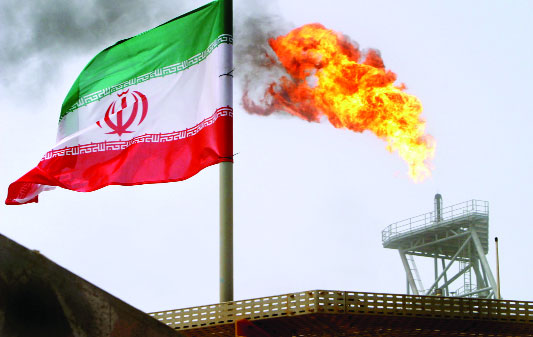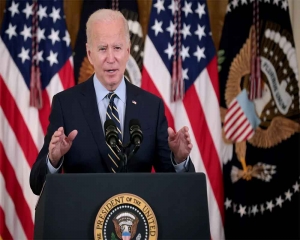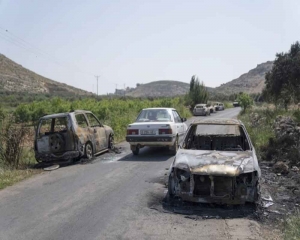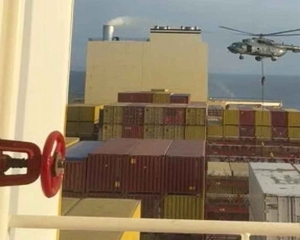Rising tensions between the US and Iran have put India’s traditional ties with Tehran on test. It’s time New Delhi weighs its options and takes a tactful decision
India is a strategic neighbour of Iran. Both countries are important and effective political and economic actors in South and West Asia. Common culture and communications have strengthened relations between the two since centuries. Over the past 20 years, Iran has put in place three major projects to improve cooperation with India. First was the participation in a mega project for the construction of a gas pipeline, which has long been called the Peace Pipeline. The second relates to the project of drilling and gas production from the Farzad-B gas field in the Persian Gulf. The third is the strategic development of the Chabahar Port. These are three main issues in the prospect of developing economic relations between Iran and India. The implementation of each of these projects can have a positive effect on the development of political relations between the two countries.
Furthermore, for a long time, particularly since the beginning of the economic reforms in the 1990s, India, as a steady buyer of Iran’s oil, has been a reliable partner of the National Oil Company. Several Indian refineries have set up their manufacturing processes in Iran based on the specifications of Iranian petroleum.
In the first round of Iranian oil sanctions between 2010 and 2015, Indians repeatedly negotiated with the US Government on exemptions from Iran’s sanctions and even conducted high-level political consultations in such a way that almost during the entire period, Iran’s oil exports to India, although reduced to a small extent, were never cut off. This was possible due to the apparent determination of India to keep its oil-related cooperation with Iran going than comply with the US Government’s approach. Indians knew it well that they should keep their interests despite the severe tension between Iran and the West.
India has prioritised its national interest by having a stable line of cooperation with its neighbours and major countries in the South and West Asia, where Iran is a key country. This matter led to the continuation of selling oil to India during Iran’s oil sanctions. And after the signing of the Joint Comprehensive Plan of Action (JCPOA) deal, India was one of those countries which earnestly increased its oil transaction with Iran to a level even higher than before.
At the same time, even though some nations doubted the continuation of calmness between Iran and the US, India, interestingly and undoubtedly, began developing its relations with Iran, resulting in the signing of an Memorandum of Understanding (MoU) between the two countries for the development of the Chabahar Port in May 2015. India is well aware that cooperating with neighbours and actively participating in developing projects with them will play a crucial role in its own development and resource management. In fact, India knows that oil from Iran will be in the best interests of its people.
However, with a new round of US sanctions on Iran coming into effect — especially against its oil industry, which was earlier out of the international free trade agreement and against the rules of international law of the White House — India has been compelled to reduce its purchases of Iranian oil and subsequently stopped purchasing it for some months. India is the world’s third largest oil importer and a large share of that comes from Iran (23.5 million tonnes in 2018-19). The stoppage of imports has not only hurt the oil economy but is definitely not good news for New Delhi as this decision can put its bilateral relations with Iran at risk. India and Iran have a deeply historical and cultural relationship and have also maintained robust political relations despite many obstacles. The latter has been a regional partner and a loyal neighbour to the former. Both nations have worked together for the stability of their respective regions.
The handing out of the development of the Chabahar Port to India was of strategic advantage to Iran. The latter looked at the former as a project partner (while the Chinese work at the port of Gwadar) due to the trust it had in India as a loyal neighbour. For India, the Chabahar project is expected to serve as a gateway to central Asia besides promising trade benefits to the country. For the purpose of building further relations as well as for regional stability, it will be in New Delhi’s interest to work more closely with Tehran to avoid any direct backlash.
Throughout the idea of constructing a pipeline for gas export to Pakistan and then extending it to India, Iran encouraged India to participate. India, too, showed great interest and enthusiastically took part in the negotiations. After about 14 years of talks and with a changed regional gas market scenario, India withdrew from the agreement because of security issues and high costs although there was an opportunity for it to cooperate in gas trade with Iran through a straight line of submarine pipelines. Meanwhile, the Farzad B gas field development project in the Persian Gulf, too, is lying in a limbo even as it was provided the highest level of historical flexibility to develop this project. These two major energy projects hold the potential to uplift the Indian economy and boost India’s energy supply requirements for industrial development. Although for Iran, such experiences will not change its approach either now or in the future. After all, economic issues cannot eliminate the essential importance of cooperation between the two great countries.
With Iran being under economic pressure and the US sanctions hovering over it, these are testing times for India. It has to not only deal with the US pressure but has to also secure its interests vis-à-vis Iran. Iran’s oil export and the development of the Chabahar Port are two completely different issues on the face of it. Refineries in India are Iran’s old oil buyers and the Chabahar Port developer has no organisational relationship with them. But the fact is that both these issues are related to the “political will of both countries” to further cooperation.
The catch 22 situation for India lies in managing relations with both, the US and Iran. It will be unacceptable if India acts in accordance with the US’ rules on Iran oil sanctions. However, in the development of the Chabahar Port, it has eagerly pursued discussion for exemption from sanctions. Now is the time for New Delhi to take an important decision. India has a precise programme for development and has made great strides in achieving economic and social success in the last half century. The world views it as an emerging superpower. As a regional power, Iran aspires to consider India as a stable country in its decisions to plan future cooperation on these experiences. It will be practically impossible for India to stop purchasing oil from Iran and pursue the development of the Chabahar port. Both nations need to prove their development potential through the successful implementation of the proposed projects and find ways and means around geopolitics.
(The writer is an Iranian journalist)


























